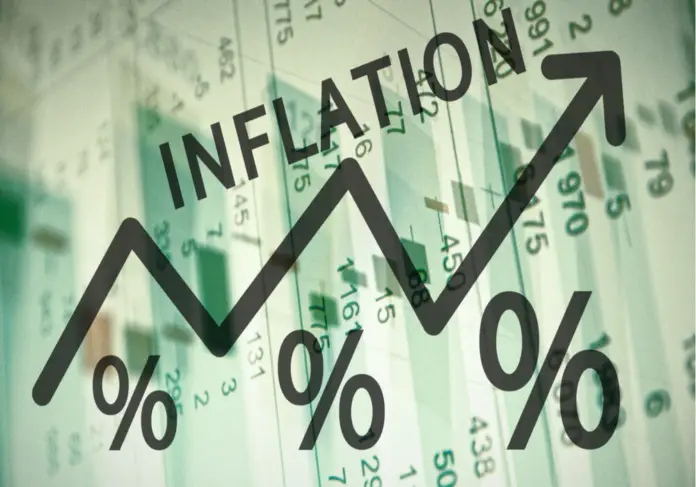The doomsday scenario is building up; the notorious “economic default” by the state is peeping through the windows. Most of us are now bracing for our doors to be busted, and there are still many who laugh it off, terming the peeping monster a prank by the kid next door. They would not have been fools had they been able to build up a paradise for themselves to live in. Instead, they built up a hell for themselves and considered the same as heaven. That is why they are fools. Acknowledging the indicators in the air, ala hyperinflation and political instability, we can try navigating through the turbulent times. In my opinion, by doing so, we can find answers to questions that are critical to determining our survival mode. Foremost is to make an assessment of how bad it can get. Then how it can affect us, how can we protect ourselves and how to graciously suffer the turmoil such a situation brings in for sure. Let us boggle our minds.
First things first, how bad it can get; it can go very bad. Yes, why do I say so? It is no rocket science. It is purely based on the relationship between demand and supply. An increase in demand can inflate the price of a commodity, and vice versa, it can result in lower prices. Inflation can slowly tend to result in a hyper-cycle of imports and production. Excessive inflation; hyperinflation can create critical hold ups in supply and availability too. For debt-run economies like ours, the scenario is grimmer. The commodities and basic necessities of life seem to vanish from the market, either hoarded by the market to earn more profits or even seized by governments in an undue effort to regulate inflation. The currency depreciates, ultimately not leaving much in the government’s kitty to run the country. Fuel, energy and food sectors get a major hit.
Now, how can it affect us as individuals. Pays hardly make the ends meet, businesses run into loss leading to closures. Unemployment soars, and brain drain sets in. Savings go up in smoke. Such a situation politically destabilises a country, which can make governments ineffective. The rule of law is the foremost casualty. People go into a loot-to-survive mode, and the crime rate surges. Public and private properties become soft targets as the capacity of the government to enforce the law diminishes, and street justice becomes more frequent. This loss of hope for nations takes a while to make sense of what to resort to next.
Pakistan is not the only country placed on the list of countries whose default is likely; there are many others too. There are lessons to be learnt from those who defaulted earlier. One such model is Brazil, whose hyperinflation in 1989 climbed notches to reach 1,700 percent, after a dismal governmental effort through freezing of prices and wages, both. In 1990, a new elected leadership promising to cut down on inflation ended up resorting to yet another freeze, this time neither prices nor wages but on people’s savings. Declaring that the government has borrowed money of those for eighteen months, whose bank deposits were more than USD 1,250. On the contrary, common sense says that such a massive level of financial mismanagement cannot last. On the contrary, it did. People again fell for politicians and their promises. Resultantly, the government got impeached. Notwithstanding, a prudent plan was put in place by introducing the “Unit of Real Value (URV), which was a make-believe arrangement for Brazilians to gradually trust in the new currency unit. It did work somehow, but this was the 12th currency reset in 122 years of Brazilian history to control inflation. The Brazilian economy, however, bounced back, the complete dynamics of which is beyond the scope of this write up, but it sure was mentioned to bring a silver lining to the same.
A few recommendations for survival at an individual level are; learn to be content. Our great religion, Islam, lays emphasis on exercising moderation in all aspects of life. Follow that in true spirit. Come out of the denial mode regarding hyperinflation or default to plan an effective way out. Pay bills and taxes regularly; they are an income source for the government. Prioritize personal debt and reschedule, if need be. Make balloon payments if finances allow you to get out of a debt cycle. Downsize by shedding extra physical baggage by selling. Grow your own food if you’ve got some land. Pool up family income to survive through it. Cut down on the use of energy and fuel. Carpool to work where possible.
At the collective level, be wary of short-sighted policy measures taken by the government, consider them as financial fast food, as they will remain low on nutrients and will be a temporary fill to muster votes in the future. People need to watch out for economic jargon. Look up basic economic terms and their implications to get a basic idea of economic rudder. Do not consider these as sheer terms spitted out in annual budgets. They somehow indicate something creepy. Terms like ‘tax hikes’, ‘freezes’, ‘import duties’ and ‘increased discount rates’ are more or less red flags that hyperinflation is setting in. Remain united as the ruling elite is well aware of the power of division. Empathy for others is a virtue that remains relevant in good and bad times alike. Where possible, promote and adopt for the blessings of the joint family system. Developing a local barter trade system can also help through some sort of regulatory mechanism. Collective neighbourhood watch can help to control crime. Last but not the least, respect the law of the land, come what may. May the Almighty save us from the toils of turmoil.






